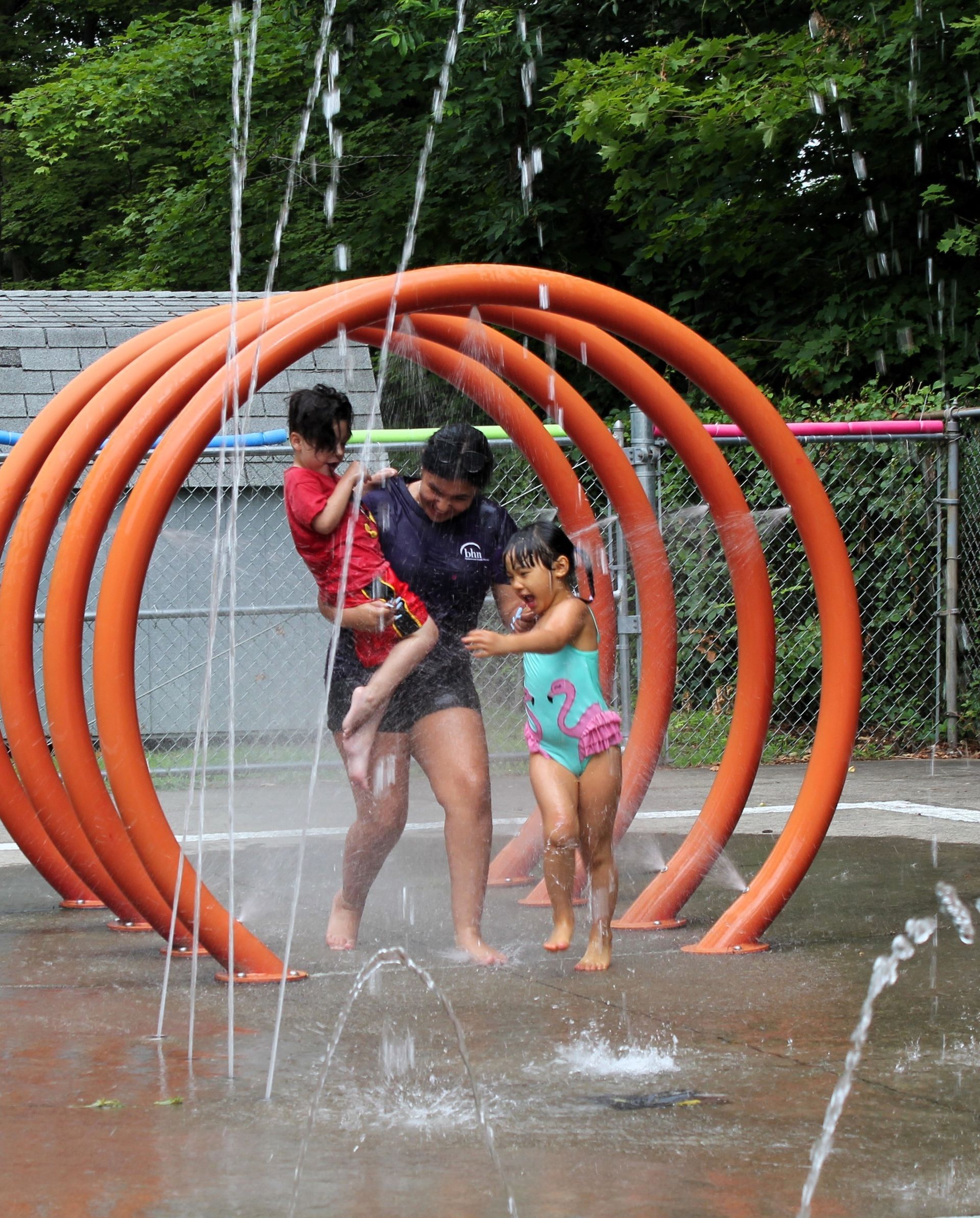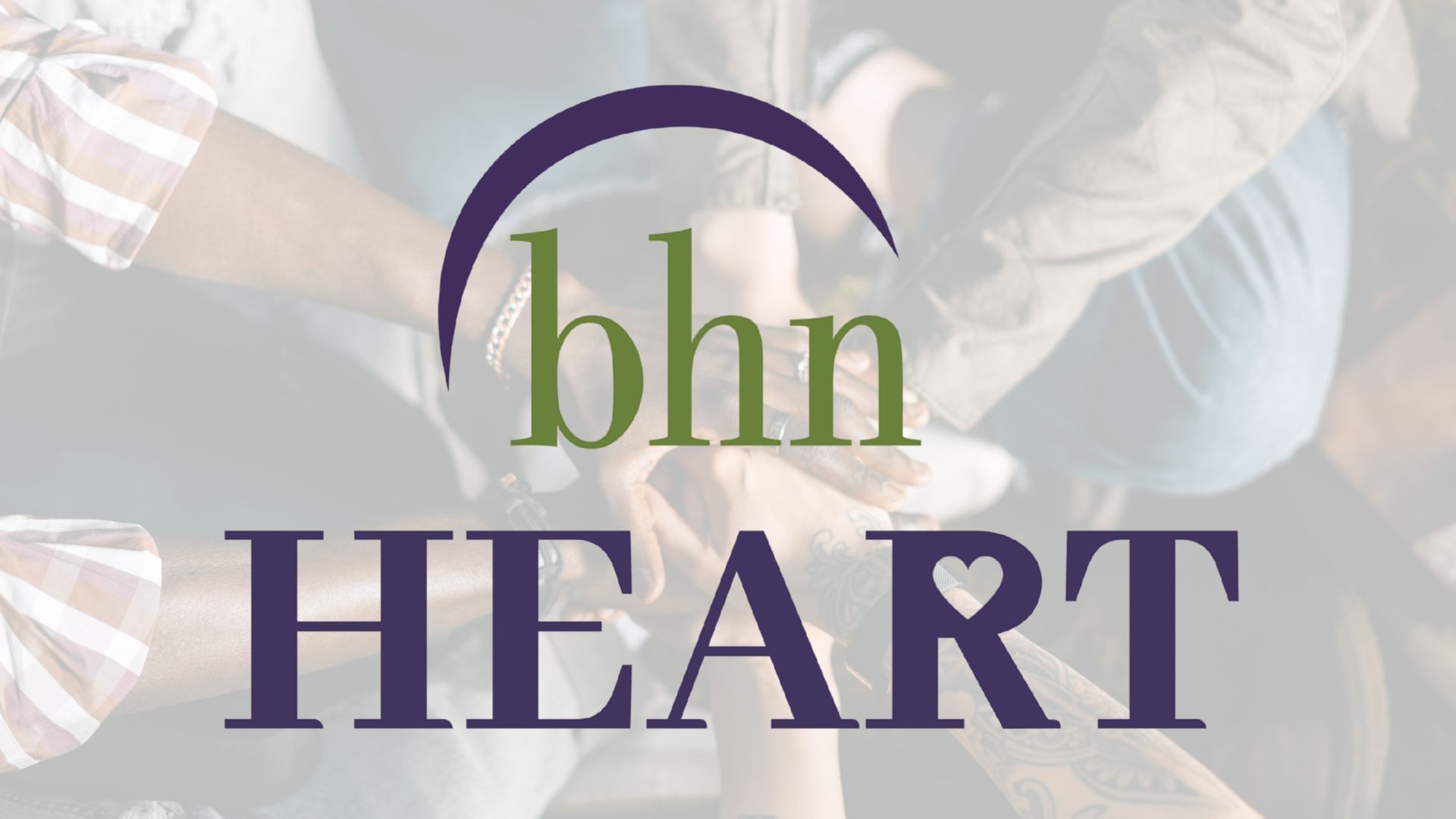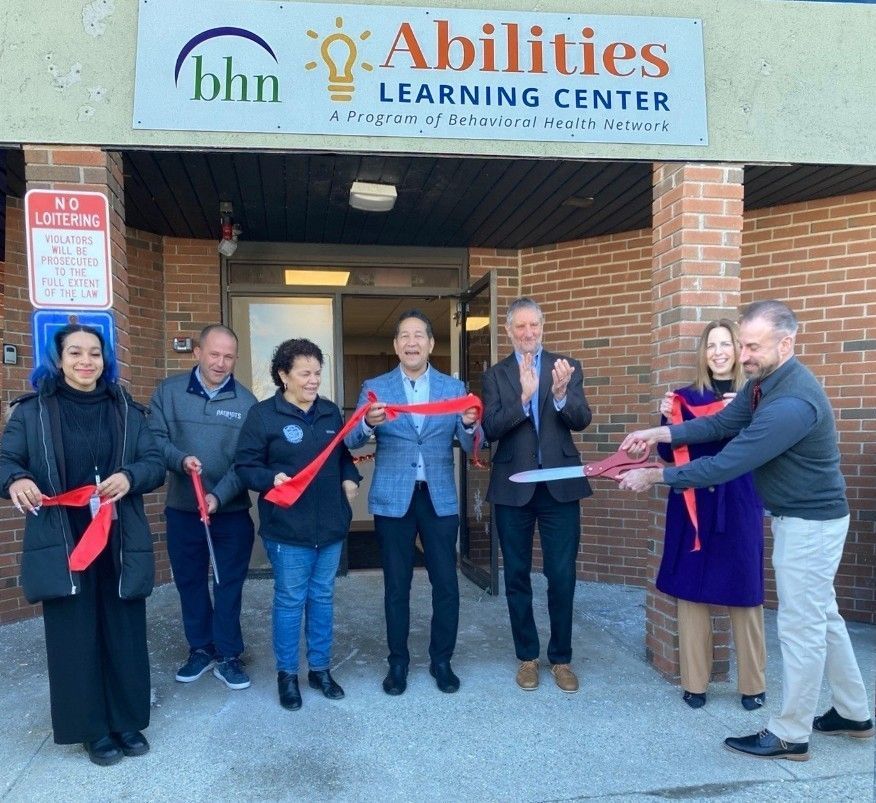Celebrating Deaf Awareness Month: Voices from Our BHN Community

September is Deaf Awareness Month, a time to celebrate the culture, language, and lived experiences of Deaf, Hard of Hearing, and DeafBlind individuals. At BHN, we’re proud to highlight the voices of two incredible team members, Laura Peters and Jenny Leca, whose work and personal journeys help shape more inclusive, affirming behavioral health spaces. Their stories remind us why inclusion matters and how we can all do better to support Deaf individuals in recovery and mental health care.
Laura Peters, CARC, CPS, Service Coordinator for Deaf and Hard of Hearing
A woman in long term dual recovery, Laura brings both lived experience and professional insight to her role supporting Deaf individuals in recovery. Her work centers on breaking down barriers and building bridges between clients and the services they need.
“My primary focus is on ensuring accessibility and fostering meaningful connections for individuals who are Deaf or Hard of Hearing. I serve as a bridge between the people we serve and the services they need.”
Having worked as a Certified Addiction Recovery Coach for eight years, Laura has seen firsthand the challenges Deaf individuals face in substance use disorder (SUD) programs. Her passion and advocacy is rooted in a deep understanding of systemic inequities. “I’ve witnessed firsthand how systemic barriers can prevent Deaf/Hard of Hearing/DeafBlind people from accessing the care they deserve. This inspired me to become a strong advocate for culturally and linguistically appropriate services.”
At BHN, Laura ensures that Deaf clients are not only accommodated but truly included. Services include ASL and Deaf interpreters, video relay services (VRS), and videophones at treatment sites. Her fluency in ASL and understanding of Deaf culture allow her to create spaces where clients feel seen and heard.
She’s seen firsthand the unique challenges Deaf individuals face when accessing SUD treatment many Deaf individuals face isolation, lack of accessible information, and stigma. “We address these by creating safe spaces, offering trauma informed care, and advocating for systemic changes to remove communication barriers. We also work to ensure that Deaf people are not just accommodated but truly included!
Laura also works to dispel common misconceptions.
“One major misconception is that Deaf people are less capable of engaging in recovery due to communication barriers. When services are accessible and culturally competent, Deaf people thrive in recovery. Another myth is that ASL is just a translation of English, it is rich complex language with its own grammar and cultural context.”
Laura recalls a powerful moment that underscored the importance of accessible care. “A Deaf person shared that for the first time, they felt truly understood and supported in their recovery journey because they could communicate in their native language; ASL. That moment reinforced why accessibility is not optional, it is essential!”
For Laura, Deaf Awareness Month is both personal and professional. “Mainly, it is a time to celebrate the resilience, culture, and contributions of the Deaf, Hard of Hearing, DeafBlind community. Professionally, it is a reminder to continue advocating for equity and inclusion. Personally, it’s a moment of pride and reflection on the progress we have made and the work still ahead.”
Jenny Leca, M.Ed., ATR-P, Outpatient Clinician
Jenny's journey into mental health care is deeply rooted in her lived experience. Born Deaf due to Goldenhar syndrome, Jenny spent much of her early life navigating medical procedures, missed school, and limited access to Deaf culture. She attended Clarke School, where sign language was prohibited and speech was prioritized, leaving her feeling disconnected from her identity. That changed when she transferred to East Longmeadow High School and was introduced to sign language and Deaf peers, a turning point in understanding her identity.
“Even now, I don’t fully fit into either the Deaf world or the hearing world. I live in the middle. I use a cochlear implant, and while some people call me hard of hearing, I identify as Deaf. My identity isn’t defined by technology or speech—it’s shaped by lived experience, cultural connection, and what feels true to me.”
Jenny earned an associate’s degree in liberal arts, focusing on psychology, art, and Deaf studies—fields that helped her explore identity, expression, and human behavior. Discovering art therapy as a career was a turning point. She later completed a master’s in clinical Mental Health Counseling and Art Therapy, combining academic training, personal insight, and hands-on experience to support Deaf and hard-of-hearing individuals in ways that honor how they communicate and who they are.
Her therapeutic approach is rooted in emotional safety, patience, and connection. Jenny meets clients where they are—whether they sign, speak, gesture, or struggle to find words—and adapts her methods to fit their needs.
“Emotional safety isn’t something we work toward; it is where we start… Whether someone signs, speaks, gestures, or struggles to find words, I meet them where they are. I don’t start with a modality. I start with the person… I shape the approach around them.”
Jenny practices Culturally Affirmative Therapy, which honors Deaf identity and challenges systems that weren’t built with Deaf individuals in mind. “Deaf identity is not a deficit. It is a culture, a language, and a lived experience that deserves respect… Healing begins when the space itself speaks your language.”
She’s seen how systemic barriers can weigh heavily on clients—and how important it is to validate those experiences. “These reactions are not resistance. They are responses to past harm… I validate their lived experience, name the impact of audism and exclusion, and adapt tools to fit how they think and feel.”
Jenny advocates for Deaf and hard of hearing clients within a healthcare system that often overlooks their needs. She centers empowerment by asking each person what works best and adapting care to fit them, not the other way around. “Access does not start with a device or a form,” she says. “It starts with humility. Meeting Deaf clients in their language, honoring their experiences, and letting them guide the process is what turns care into dignity.”
She encourages providers to ask rather than assume. “Just as we inquire about pronouns or gender identity, we should also ask how clients identify in terms of hearing status,” she explains. “Respect begins with language—and with the humility to ask instead of presume.” Her message to hearing clinicians is equally clear:
“Start with curiosity, not assumptions. Inclusive care means offering choices, honoring communication preferences, and adapting tools to meet the individual—rather than expecting the individual to conform to the system.”
For Jenny, Deaf Awareness Month is more than a celebration—it’s a reminder of the diversity within the Deaf community and a call to action for equity in care. It’s about recognizing that Deaf people are not all the same; some speak, some sign, some do both, and some live in between. Honoring diversity means adapting systems to fit the person, not asking the person to fit the system. As Jenny puts it, being seen isn’t enough—we need respect, equity, and real change. That’s not just access. That’s dignity.
Creating Space for Equity and Belonging
Laura and Jenny remind us that inclusion goes beyond access, it’s about listening deeply, learning continuously, and leading with respect. Deaf Awareness Month is not just a time to recognize the culture and contributions of the Deaf community—it’s a chance to reflect on how we show up for Deaf individuals in our care, on our teams, and in our communities. Their stories challenge us to move from awareness to action, and to build spaces where Deaf individuals feel truly seen, heard, and valued—not just in September, but every day.
For more information and to explore the diversity of culture, and communication of the deaf community visit The National Deaf Center resource hub.
To learn more about BHN's specialized individual therapy services call 413-301-9355 or make a referral. For SUD Referrals email SUDAccess@bhninc.org and include that you need Deaf or Hard of Hearing services.
SHARE
Topics
Newsletter Sign-Up
Sign-up for our newsletter to receive updates on what's happening at BHN.





